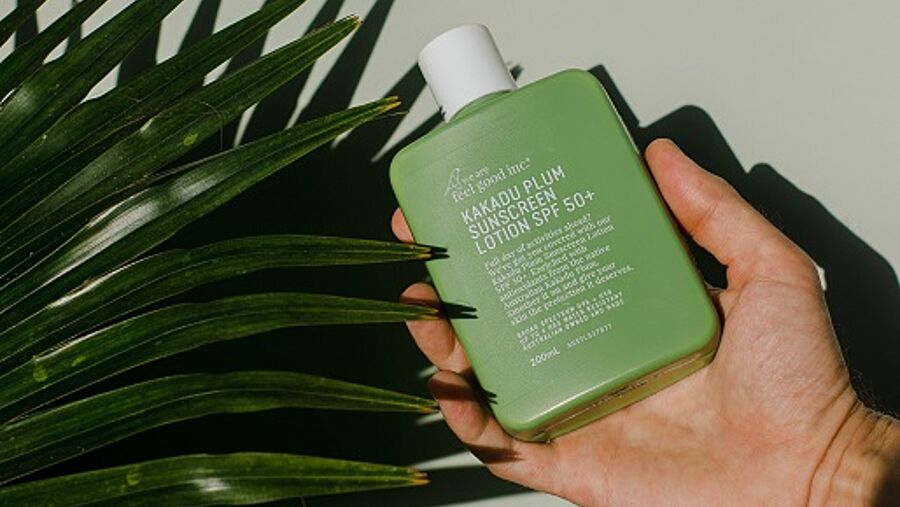Skincare on board - Sunscreen Routine
Dermatologist Davide Guardoli explains how to protect yourself from the harsh environmental conditions on board.
Sun exposure is something that needs to to be at the forefront of all yacht crew's minds. After all, for many roles onboard, their very job description is to be outside and on the water, during the hottest hours of the day, in the hottest months of the year, in an industry whose very existence is built on cruising under blue skies and bright sunshine.

Yacht crew members are uniquely exposed to harsh environmental conditions that can significantly impact their skin health.
explains Davide Guardoli, a dermatologist in Nice who has over 15 years’ of consulting experience.
The list of skin issues the combination of prolonged sun exposure and constant contact with saltwater and wind can lead to is extensive. It includes sunburn and UV damage, dehydration and dry skin, windburn and chapping, hyperpigmentation, acne and breakouts, saltwater irritation, heat rash and photoaging.
Fortunately, Guardoli has some practical strategies and tips for crew to protect their skin from the harsh effects of prolonged sun exposure.
“Of course, the first step is a sunscreen with at least SPF 50 that protects against both UVA and UVB rays,” he says. “Opt for water-resistant sunscreens to ensure protection even when sweating or in contact with water.” He advises crew to adopt a mantra of “reapply regularly”. “Reapply every two hours — or more often if swimming or sweating heavily,” Guardoli advises.
Preventative Steps
Protective clothing is also crucial: while wide-brimmed hats protect the face, ears and neck, and sunglasses with UV protection safeguard the eyes and surrounding skin, crew clothing with a high Ultraviolet Protection Factor (UPF) rating to block UV rays should also be worn whenever possible. Despite the heat, he adds that lightweight, long-sleeve shirts and pants provide extra protection, if possible as part of your crew uniform.
Beyond what you wear, other protective measures include taking regular breaks in shaded areas — and hydration. Not only does drinking plenty of water maintain skin moisture and overall health, but it’s also important to incorporate “hydrating foods” — or water-rich foods like fruits and vegetables — into your diet.
It’s also important to consider what happens once you’re out of the sun for the day.
After-sun care practices include the use of after-sun lotions or aloe vera to soothe and hydrate the skin after sun exposure. Cool showers also lower the skin temperature and reduce inflammation
Guardoli says.
Routine Rules
“Considering their busy schedules and the environmental conditions they face, yacht crew need a skincare routine that is both effective and efficient,” Guardoli says.
He suggests a daily routine that protects, nourishes and repairs the skin and, crucially, doesn't take up too much time. “In the morning, use a gentle, hydrating cleanser to remove any impurities accumulated overnight. Then apply a Vitamin C serum to your face and neck, followed by a lightweight, hydrating moisturiser to keep the skin hydrated and, lastly, a generous amount of sunscreen to all exposed skin,” he says.
In the evening, cleanse and moisturize, using a night cream or heavier moisturizer — “to lock in hydration and help repair the skin overnight,” he says.
Once a week, use a hydrating mask to give the skin an extra boost of moisture, as well as soothe any irritation.
If, despite all precautions, sunburn does occur, Guardoli recommends simple steps:
Get out of the sun, cool the skin in the shower and gently pat yourself dry, apply aloe vera or a moisturiser and drink plenty of water
he says. Other measures include taking over-the-counter pain relievers like ibuprofen and using a 1% hydrocortisone cream to reduce itching and inflammation. “Wear loose, soft clothing to avoid further irritating your skin and activities that could cause excessive sweating or friction," he says.
And, if the sunburn is severe, covers a large area of the body or is accompanied by symptoms like fever, chills or dehydration, it’s time to seek medical attention.
For anyone working in the industry, annual skin check ups are a must. Also Guardoli recommends performing monthly self-examinations and documenting any details in a journal or by taking photographs.
The chance to spend their days in the great outdoors is what appeals to so many — and fortunately, by incorporating some smart tips into your daily routine, it doesn’t have to be at the expense of your skin health.